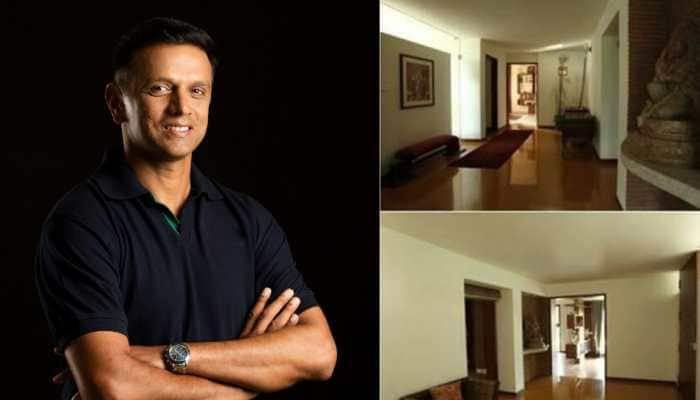Became PM to get Sri Lanka rid of politics of hate: Mahinda Rajapaksa
Newly appointed Prime Minister of Sri Lanka Mahinda Rajapaksa on Sunday issued a statement stating that the UNP-UPFA government came to an end as the result of the UPFA leaving the coalition.
Trending Photos
) Image Courtesy: Reuters
Image Courtesy: Reuters Newly appointed Prime Minister of Sri Lanka Mahinda Rajapaksa on Sunday issued a statement stating that the UNP-UPFA government came to an end as the result of the UPFA leaving the coalition.
In a media statement, Rajapaksa said that he was invited by President Maithripala Sirisena to become the prime minister, which he accepted to form a new government and get rid of the politics of hate.
Rajapaksa was appointed the prime minister of Sri Lanka amid the ongoing political crisis in the country.
Following his appointment, Ranil Wickremesinghe was removed from the post of prime minister.
Sirisena also suspended parliament till November 16 after Wickremesinghe, who had termed his sacking as illegal and unconstitutional, sought an emergency session to prove his majority.
The president also withdrew Wickremesinghe's personal security and vehicles in order to accord them to his 72-year-old successor, who staged a dramatic political comeback.
In his first address to the nation after sacking Wickremesinghe, Sirisena said his former ally's political conduct since the victory in 2015 elections was unbecoming.
"He appeared to treat Sri Lanka's future as a joy ride for a coterie of people around him who had no sense of the common man's thinking," he said.
"He completely destroyed the concept of good governance while corruption and waste became rampant. He was making arrogant arbitrary decisions making a mockery of collective responsibility," Sirisena charged.
"There was a huge gap in policy agreement between the two of us. I believe the cultural and policy differences between us contributed to this political and economic crisis," he said.
Sirisena also accused the United National Party (UNP) leader of treating very lightly the alleged plot to assassinate him.
The president last week accused his unity government partner of Wickremesinghe's UNP of going slow on the investigations after a man named Namal Kumara in mid-September disclosed the alleged plot to assassinate him and former defence minister Gotabhaya Rajapaksa.
"Having taken into consideration all crisis, the political and economic as well as the assassination plot on me, I was only left with one alternative which was to appoint former President Mahinda Rajapaksa as the prime minister," Sirisena said.
Rejecting Wickremesinghe's allegation that his sacking was unconstitutional and illegal, he said, "I must make it very clear that the new appointment (of Rajapaksa) was made on expert legal advice in strict accordance with the Constitution."
Sirisena's remarks came after the Speaker urged him to restore Wickremesinghe's privileges as the leader of the government who has "obtained a mandate to secure democracy and good governance."
Jayasuriya said a prorogation of parliament should be one in consultation with the Speaker.
Sirisena's decision to suspend the Parliament until November 16 was seen as an effort to coerce legislators into supporting Rajapaksa.
Wickremesinghe has refused to vacate the prime minister's official residence-cum-office of Temple Trees.
The political crisis in the island nation on Sunday triggered violence as one person was killed and two others injured as the bodyguards of Petroleum Minister Arjuna Ranatunga, a Wickremesinghe loyalist, fired live rounds when supporters of Rajapaksa threatened the cabinet member.
The political developments, which has thrown the country into a constitutional crisis, unfolded after Sirisena's broader political front United People's Freedom Alliance (UPFA) announced that it has decided to quit the unity government with Wickremesinghe's UNP.
Sirisena and Wickremesinghe had joined to form a government of national unity in 2015 to bring in constitutional and governance reforms including a new Constitution to address the long-standing issues of the Tamil minority.
Sri Lanka nearly faced economic sanctions from the West over Rajapaksa' brutal military crackdown on the banned LTTE.
The LTTE sought a separate Tamil homeland in the northern and eastern provinces of the island nation for nearly 30 years before its collapse in 2009 after the Sri Lankan Army killed its supreme leader Velupillai Prabhakaran.
(With PTI Inputs)
Stay informed on all the latest news, real-time breaking news updates, and follow all the important headlines in india news and world News on Zee News.
Live Tv







)
)
)
)
)
)
)
)
)
)
